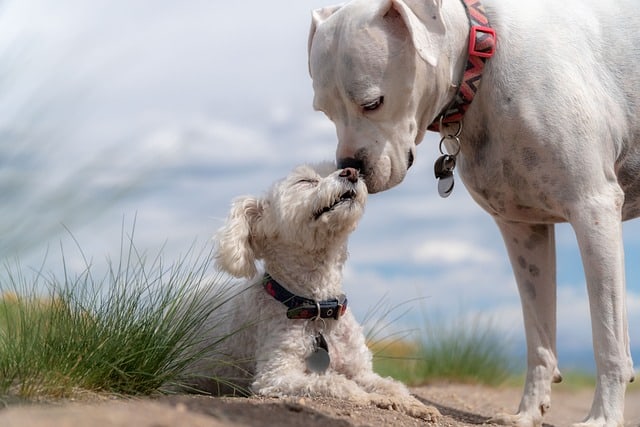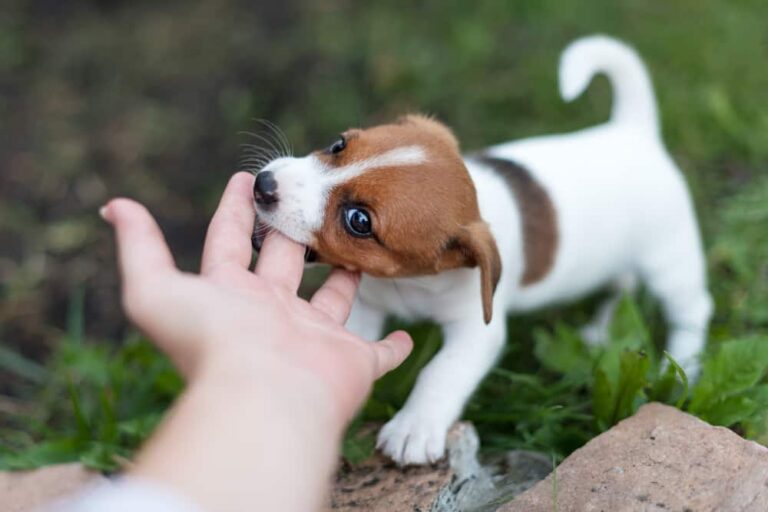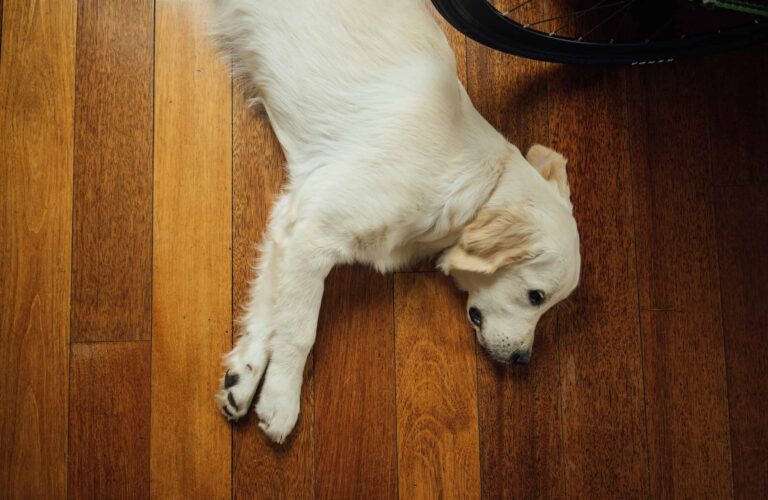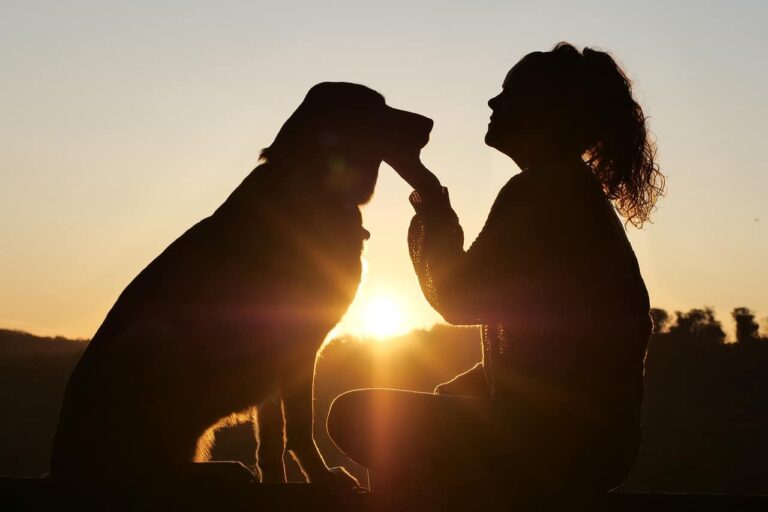Understanding your dog’s whining: Why dog whines to go out but doesn’t potty?

Do you ever wonder why your dog whines to go outside but doesn’t actually use the opportunity to potty?
It can be frustrating, but it is key to understand the underlying reasons behind this behavior. By addressing the issue effectively and creating a consistent routine, you can help your furry friend overcome this confusion.
In this article, we’ll explore possible reasons why dog whines to go out but doesn’t potty, the importance of addressing it, and training techniques to encourage your dog to potty outside.
Contents
- Key Takeaways
- Reason dog whines to go out but doesn’t potty
- Attention-Seeking
- Exploration
- Routine or Habit
- Anxiety or Stress
- Environmental Factors
- Medical Issues
- To address this behavior
- Observe
- Use Positive Reinforcement
- Establish a Routine
- Ignore Attention-Seeking Whining
- Provide Mental and Physical Stimulation
- Consult a Veterinarian
- How do I know if my dog has a UTI
- Why is my dog whining so much to go outside
- Why does my dog want to go outside constantly?
- Why does my dog suddenly refuse to pee outside
- Why will my dog not poop in the rain?
- Final Word
Key Takeaways

- Understanding the reasons behind a dog whining to go out but not pottying is crucial for addressing the behavior.
- Consistency and positive reinforcement are key in training a dog to potty outside.
- Dogs may whine to go outside due to their attraction to critters and exciting smells.
- Health issues, weather conditions, and distractions can contribute to a dog’s reluctance to potty outside.
Reason dog whines to go out but doesn’t potty
Have you ever wondered reasons why your dog whines to go out but doesn’t go potty? There can be a few reasons for this behavior.
Attention-Seeking
dog usually seek your attention if your dog whines to go out but doesn’t potty. Sometimes, dogs learn that whining gets them the attention they crave, even if it’s not for going potty.
Here are three possible reasons why your dog is attention-seeking:
- Loneliness: Your dog may feel bored or lonely and is using whining to engage with you.
- Lack of stimulation: Dogs need mental and physical stimulation. If they’re not getting enough, they may resort to attention-seeking behaviors.
- Inconsistent reinforcement: If you’ve unintentionally reinforced the whining behavior in the past by giving attention or letting them out, your dog may continue to do so.
To address this behavior, it’s important to provide your dog with regular exercise, mental stimulation, and positive reinforcement for appropriate behaviors. By doing so, you can help redirect their attention-seeking tendencies.
Exploration
When your dog whines to go out but doesn’t potty, they may be eager to explore the outdoors and satisfy their curiosity. Dogs are naturally curious creatures, and the outdoors offers a new world of smells, sights, and sounds to investigate. Your dog wants to go outside for a potty break and to engage in their natural instinct to explore. New smells, critters, or even subtle sounds that pique their interest may entice them. Exploring the outdoors provides mental stimulation and gratification that indoor activities may not offer. Understanding your dog’s desire to study can help you address their behavior effectively.
Routine or Habit
Establishing a consistent routine for your dog’s potty breaks is crucial in addressing the reason they whine to go out but don’t potty. Having a regular schedule can help your dog develop good potty habits and eliminate confusion.
Here are three reasons why a routine is essential:
- Predictability: Dogs thrive on routine and knowing what to expect. By providing regular potty breaks, you create a sense of predictability for your dog, reducing their anxiety and helping them understand when it’s time to go outside.
- Reinforcement: Consistent potty breaks allow you to reinforce positive behavior. When your dog goes potty outside, praise and reward them, reinforcing that going out is the desired behavior.
- Training Opportunity: A consistent potty routine provides an opportunity for training. By establishing a routine, you can work on commands like ‘go potty’ and reinforce the desired behavior.
Anxiety or Stress
If your dog whines to go out but doesn’t potty, it may be due to anxiety or stress. Just like humans, dogs can experience anxiety or stress in certain situations. This can affect their behavior and make them hesitant to go potty outside.
A dog may exhibit behaviors like whining or pacing when feeling anxious or stressed. They may associate going outside with negative experiences, leading them to resist going potty.
Addressing the underlying anxiety or stress is essential to help your dog feel more comfortable and confident. This can be done through positive reinforcement, creating a calm environment, and seeking professional help.
Understanding your dog’s emotions and providing the support they need will help them overcome this challenge. Now, let’s explore the environmental factors that may contribute to this issue.

Environmental Factors
If your dog whines to go out but doesn’t potty, environmental factors may contribute to this behavior. There are several reasons why your dog may be behaving this way:
- Distractions: Your dog may be more interested in exploring the outside environment than actually going potty. The sights, sounds, and smells can be captivating, causing them to forget their original purpose.
- Weather conditions: Extreme weather, such as heavy rain or extreme heat, can make your dog reluctant to do their business outside. They may prefer to stay indoors where it’s more comfortable.
- Surface preferences: Some dogs have specific preferences for where they like to go potty. They may prefer grass, dirt, or even concrete. If the area they’re taken to doesn’t match their preference, they may resist going potty.
Understanding these environmental factors can help you address the issue. Providing a designated potty area, ensuring a comfortable environment, and being patient with your dog’s preferences can encourage them to go potty outside during potty time.
Medical Issues
Check for any underlying medical issues if your dog whines to go out but doesn’t potty. It’s important to consider that your dog may have a health problem causing this behavior.
Dogs can experience digestive system issues, urinary tract infections, hip dysplasia, arthritis, urinary incontinence, diabetes, or kidney problems, all of which can affect their potty habits. If your dog is whining to go outside every time but doesn’t actually need to go potty, it’s crucial to consult a veterinarian to rule out any potential medical issues.
They can properly diagnose and recommend the necessary treatment or management plan to address your dog’s health concerns. Taking care of your dog’s medical needs will help alleviate their discomfort and improve their overall well-being.
To address this behavior
To address this behavior, there are several strategies you can implement.
Observe
By closely observing your dog’s behavior during potty breaks, you can gain valuable insights into their motivations and address this whining behavior effectively. Here are three important reasons why observing your dog is crucial:
- Understanding their potty habits: By observing your dog’s behavior, you can determine their preferences for where or when they go potty. This knowledge can help you create a routine and give them the right opportunities to eliminate.
- Identifying underlying issues: Observing your dog’s behavior can help you rule out any medical concerns causing them to whine without pottying. It’s important to ensure their physical health isn’t the root cause of the issue.
- Assessing their emotional state: Whining to go out without pottying could indicate anxiety, boredom, or attention-seeking. By observing their behavior, you can gauge their emotional state and address any underlying issues contributing to the behavior.
Use Positive Reinforcement
Encourage your dog’s desired potty habits by consistently using positive reinforcement techniques.
When your dog whines to go out but doesn’t potty, it’s essential to use positive reinforcement to address this behavior. Instead of scolding or punishing your dog, focus on rewarding them for the desired behavior of going potty outside.
Use treats, praise, and affection to reinforce their good behavior. When your dog successfully goes potty outside, immediately reward them with a treat and verbal praise. This positive reinforcement will help them understand that going potty outside is the desired behavior.
By consistently using positive reinforcement, you can help your dog understand what’s expected of them and increase their likelihood of going potty outside.

Establish a Routine
Start your efforts to address this behavior by establishing a consistent routine for your dog. Dogs thrive on routine, and having a structured schedule can help them understand when to go outside to potty. Here are three reasons why establishing a way is important:
- Predictability: Dogs feel more secure and comfortable knowing what to expect. Establishing a routine will teach your dog that whining to go out is only rewarded when they potty outside.
- Reinforcement: Consistency in your practice allows you to reinforce the desired behavior. When your dog successfully potties outside, praise and reward them. This positive reinforcement helps them understand that going potty outside is what you want.
- Understanding: By following a routine, your dog will begin to understand that going outside is solely for potty purposes. This clarity can help reduce confusion and prevent accidents inside the house.
- Potty training: Consider setting up a potty pad area outside and gradually reducing the pads’ size over time. The transition from potty training on pads to potty training outside can be challenging for some dogs, but it is not impossible.
Ignore Attention-Seeking Whining
To address this behavior, you should ignore the attention-seeking whining from your dog. When your dog whines to go out but doesn’t potty, it may be trying to get your attention or seeking some form of interaction. Ignoring this behavior prevents you from reinforcing it with attention or rewarding it. This can help to extinguish the behavior over time.
It’s important to remember that positive reinforcement should be used when your dog does potty outside. This means praising and rewarding your dog when they successfully go potty in the designated area. This will help to reinforce the desired behavior and encourage your dog to continue pottying outside.
Now, let’s explore how providing mental and physical stimulation can help address this issue.
Provide Mental and Physical Stimulation
Providing adequate mental and physical stimulation is essential for addressing your dog’s whining behavior without pottying. Here are three ways to provide the stimulation your dog needs:
- Engage in interactive play: Play games like fetch or tug-of-war to give your dog physical exercise and mental stimulation. This helps tire them out and redirects their energy.
- Provide puzzle toys: Use interactive toys that challenge your dog’s problem-solving skills and keep them mentally engaged. These toys provide mental stimulation and can help alleviate boredom.
- Take regular walks: Regular walks provide physical exercise and allow your dog to explore new scents and sights, providing mental stimulation as well.
Consult a Veterinarian
If your dog’s whining behavior persists or you notice any changes in their behavior, it’s important to consult a veterinarian to address this issue.
While whining to go outside but not pottying can be frustrating, it may indicate an underlying problem that needs medical attention. A veterinarian can help rule out any health issues causing this behavior.
They can also guide establishing a consistent routine for your dog’s potty breaks and offer training techniques to reinforce positive behavior.
How do I know if my dog has a UTI
If your dog has a UTI, you may notice frequent urination and signs of discomfort. UTIs in dogs can cause them to go out but not potty, confusing you as an owner. Here are some signs to look out for that may indicate a UTI in your dog:
- Increased frequency of urination: If your dog is constantly asking to go outside but doesn’t actually go to the potty, it could be a sign of a UTI.
- Straining or difficulty urinating: Your dog may appear to be in pain or discomfort while trying to urinate.
- Blood in the urine: Any red or pink discoloration in your dog’s urine could be a sign of a UTI.
If you suspect that your dog has a UTI, it’s important to consult a veterinarian for a proper diagnosis and treatment. UTIs can be painful for your dog and may require antibiotics to clear up the infection.
Why is my dog whining so much to go outside
If your dog is whining excessively to go outside, it may indicate that they urgently need to relieve themselves or are seeking attention. Understanding why your dog is whining to go outside can help you address the issue effectively. Several possible reasons for this behavior include anxiety, boredom, and a preference for specific potty conditions. To evoke emotion in the audience, let’s take a look at a table that highlights the possible reasons behind your dog’s whining:
Possible Reasons for Dog Whining to Go Outside
- Anxiety
- Boredom
- Seeking Attention
Addressing this behavior through proper dog training techniques is essential as a responsible dog owner. By establishing a consistent routine, providing positive reinforcement, and ensuring your dog gets enough exercise and mental stimulation, you can help them learn appropriate potty behavior and reduce excessive whining.
Why does my dog want to go outside constantly?
If your dog wants to go outside constantly, it may be due to a combination of factors such as a need for exercise, stimulation, and exploring their environment. Dogs are naturally curious creatures, and the outdoors offers endless attractions for them to investigate.
Here are three reasons why your dog may be constantly wanting to go outside:
- Need for Exercise: Dogs have energy that needs to be released through physical activity. Regular walks and playtime can help tire them out and satisfy their need to move.
- Stimulation: The outdoors provides a variety of sights, sounds, and smells that engage your dog’s senses. They may seek new experiences and mental stimulation that indoor environments can’t provide.
- Bathroom Needs: Dogs naturally want to use the bathroom outside. They prefer certain surfaces or smells when it comes to pottying. Taking your dog out regularly can help them maintain their bathroom routine.
To help your dog with this behavior, ensure they receive enough exercise, mental stimulation, and opportunities to explore outside. Establishing a consistent potty schedule and using positive reinforcement can also help reinforce desired behavior.
Why does my dog suddenly refuse to pee outside

It can be frustrating and concerning when your dog suddenly refuses to pee outside. There can be several reasons why your dog is exhibiting this behavior. Your dog may be experiencing anxiety, boredom, or seeking attention.
Another possibility is that your dog may have specific preferences for where or when they go potty. It’s important to rule out any medical concerns causing this sudden refusal.
Discovering the underlying cause of your dog’s behavior can help with training using positive reinforcement. Establishing a consistent routine and reinforcing positive behavior can also be helpful.
Remember to be patient and consistent, as it may take time for your dog to learn new potty habits.
Why will my dog not poop in the rain?
Because dogs are often averse to going poop in the rain, it can be helpful to understand why your dog may exhibit this behavior. Here are three possible reasons why your dog may not want to poop outside in the rain:
- Discomfort: Dogs may find the rain uncomfortable and prefer to hold their poop until the weather improves. The wet and cold conditions can be unpleasant for them.
- Fear or Anxiety: Some dogs may fear rain or thunderstorms, making them hesitant to go outside. They may associate the rain with negative experiences or loud noises, causing them to avoid pooping in the shower.
- Surface Preference: Dogs may prefer a specific surface, such as grass or soil, for pottying. The rain can make their preferred surface wet and muddy, leading them to hold their poop until they find a more suitable spot.
Understanding why your dog avoids pooping in the rain can help you address this behavior and find strategies to make pottying outside in the rain more comfortable for them.
Final Word
Understanding why your dog whines to go outside but doesn’t potty is crucial for practical training and a consistent routine. By addressing the underlying cause, attention-seeking, anxiety, or boredom, you can implement positive reinforcement techniques and establish a harmonious environment for you and your furry companion.
Please don’t ignore this behavior, as it can lead to confusion and accidents. You can successfully teach your dog to potty outside with patience and consistency.






